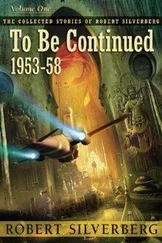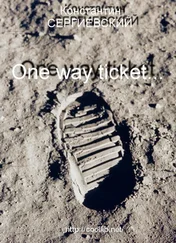They’d done it. All the way out to the lower slopes of Uranius Mons. Loaded up and brought them home. They hadn’t killed themselves or each other. It was a triumph. A record-breaking journey, even. Afterwards, they didn’t have any reason to do anything like that again, and their lives had shrunk back and now revolved around the base.
But they had food and air and heat and light and water and clean clothes and space to move around in and jobs to do. It almost didn’t feel like a prison, even though it still was.
The hot water tank was surrounded by another upturned drum, packed with more insulation to protect it from the weather. It was warm too, but nothing like the fierce heat of the vanes underneath. He checked the ventilation was free of windblown dust, scraping out what had accumulated with the edge of an improvised shovel—an access panel bolted on to a support strut.
The prevailing wind blew from a definite direction, west to east, so they knew where to park the buggies and set up the workshop. The solar farm was on the east side, to best catch the rising sun. It was someone’s job—usually Declan’s—to manually dust the panels three times during the day in order to maximize the power generation.
They had enough. Just. If they remembered to turn things off they weren’t using, and with the heat coming from the RTG, they could run the control panels and safety systems, the cameras and the air compressors. The big antenna outside didn’t take much to broadcast, but the tracking motors were two two-fifty watt beasts and powering them up needed advance warning.
They still tripped the circuit breakers from time to time. It wasn’t quite the scramble to get everything back on that it had been before.
Zeus was working on his steam engine. It still sounded ridiculous, but he was convinced he could get it to work. He had a big pile of parts, and time on his hands, when he wasn’t unblocking drains. Dee had more work, cataloging data and using the uplink to pass details of their ad hoc modifications back to XO. Declan spent his waking hours prowling the corridors, looking for things that consumed power and trying to sync the lights into a day-night cycle without affecting anything that happened in the greenhouse, which was where Zero lived, emerging only to eat, sleep and shit.
Frank’s work had settled into a series of tours, inside and outside. His constant companion was the nut runner, because the range of temperatures between midday and just before dawn was so extreme, the bolts they used to hold almost everything together had a tendency to slacken. That problem hadn’t been immediately apparent. Fixings that were rock-solid by day were barely finger-tight when the temperatures crept down to minus one hundred and fifty.
He maintained the buggies, too, every day making sure they worked, and using some of that time to go a little further afield than he might normally do. He knew he could be tracked, and he was consuming resources in the form of watts, and wear and tear on the tires. But no one—Brack, mainly—had told him he couldn’t.
Their overseer commuted backwards and forwards from the ship. The first time he’d done it, he’d walked the couple of miles to Santa Clara with only the most perfunctory of warnings, carrying only a locked metal case with him. He installed himself, not in the crew quarters, where there was plenty of room, but over in the medical bay, in what was purposed to be a private consulting room.
It had the only lockable door in the whole base. Frank wondered if that was by accident or design. Brack spent most of his time on the base either in the comms room with Dee, or one floor down in Control, doing something or other. Most of the time, the cons could forget about him—Declan assured them the cameras were there for fire detection, not keeping tabs on them. Frank wasn’t so sure.
But on occasions when they wanted to let off steam and bitch about Brack, and there was nowhere they could safely do that, they resorted to whispered side-by-side conversations while they were working. It was the best they could do. Otherwise, they’d have to all suit up, step outside and turn their microphones off. Which wouldn’t look suspicious at all.
It was why Frank liked driving up the Santa Clara. The sides of the lower valley were steep enough that he couldn’t exit onto the broad slopes of the volcano, and he couldn’t get those same panoramic views as he had done on the top of Long Beach. But if he climbed uphill for a couple of miles, the space to the south did open up, and he could see beyond the walls of the crater.
The base looked tiny, a small pale collection of rectangles, no bigger than those ranch-style houses he’d built out towards San Fernando, and covering less ground than the boneyard of empty cylinders and drums that they’d stacked, more or less together, the far side of the workshop. The ship was out of sight, across the Heights to the east, but there on the horizon was another volcano, rising from the plain like a pimple. He’d look at it some days, and believe it was further away than the twenty miles it was. Its height was almost the same as the peaks in the Sierras, but there it was, just popping out of the ground without foothills.
And sometimes the sky was almost blue. It made it—only for a moment—almost like home. But the thin, ice-white clouds, the fast-moving moons tearing overhead, the redness all around, soon broke into his daydreaming. He’d remember he was in a spacesuit, on Mars.
Other times, if he was lucky, he’d have a ringside seat on a delivery. Some ship would throw a package at the planet, and he’d catch sight of a bright spark halfway between the sand and the sun.
It would burn and flicker, pulsing like a firework, and soot and smoke would trail out behind, blown ragged by the high winds. There’d be a low booming noise, the sound of distant thunder, rolling across the landscape. Mostly, that would be all he’d hear and see. But twice he’d spotted the dark smudge of a parachute moments before it passed from sight. Still moving almost as fast as an object in freefall, but that was what it was: a huge, extended canopy, very far away.
The first time it had happened, he’d got excited. He’d thought that it had meant a delivery for them. A cargo rocket, either one of XO’s, or one of NASA’s.
But the times didn’t add up. The incoming ships would have left Earth before Frank and his crew had even arrived on Mars.
And on getting back to base, he found that they didn’t have a signal from it anyway. Someone else’s, then, descending onto the broad Tharsis plain. Brack had nixed space piracy, and eventually they’d just got used to it happening every week or so. Mars was a busy place all of a sudden.
Frank drove back down the valley and resumed his tasks. He parked up near the workshop, and before he plugged the fuel cell into the grid to recharge, he checked with Declan they had enough spare capacity to do that.
“How long does it need?”
Frank interrogated the console. “Couple of hours?”
“We’re not up to full batteries yet. I can give you an hour now, and an hour in the morning.”
“OK.” It wasn’t worth arguing about the when, as long as it was done. He climbed down and took the cable end out of the drum it was stored in—it was buried for most of its length, and came out through a hole in the bottom of the container—and slotted the end home. Lights changed on the console, telling him it was accepting charge, and he checked the clock to know what time he had to disconnect it. Not that Declan would let him forget. He recorded everything like that on his tablet, and set an alarm ahead of time.
He walked to the main airlock, now partially obscured from view by the combined Comms/Control hab, and knocked the dust from his feet against the metal steps. He went through the whole suit ritual, noting how dirty the floor of the connecting module was getting, and how the red, on contact with the moist air, turned from a coating of dust to a smeary layer of dirty grease.
Читать дальше












